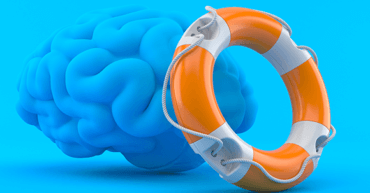News•September 21, 2022
The Brain-Eye Connection

By Ram Rao, Ph.D., Principal Research Scientist for Apollo Health
The eyes are the most beautiful expressive organs with the capability of vision. Together with the brain, the eyes are responsible for converting visual impulses to electrical signals via the optic nerve. These signals are then processed in specific areas of the brain, resulting in our ability to see and appreciate shapes, sizes, colors, and objects in a three-dimensional world.
Even though the link between the brain and eyes seems far-fetched, the eyes are directly connected to the brain, similar to other sense organs. Since the optic nerve connects the eyes to the brain, the eyes mirror the changes going on in the brain. Both vision and cognition decline with age, suggesting that these two organs are related. Research studies clearly provide a link between poor vision and cognitive decline due to Alzheimer’s disease (AD). Seniors with visual impairment are up to three times more likely to have cognitive dysfunction or dementia. Although a vision test to definitively diagnose AD does not currently exist, promising research is ongoing, and the results show a clear link between eye health and brain health that could help screen for AD.
Recent research studies show that certain eye exams can determine the likelihood of developing Alzheimer’s as there is a way of detecting signs of AD in a patient’s eyes. Retinal imaging is not only less expensive, but it also has the ability to identify microscopic plaques whose presence or absence may indicate the disease stage and treatment efficacy. Researchers have used retinal imaging to identify tiny amyloid plaques in the retina and then follow up after certain interventions to see whether the total number of plaques has declined. Retinal imaging also has the potential to reveal whether the amyloid deposits are affecting the retinal blood vessels, the neurons, and their synaptic connections.
A new imaging device called optical coherence tomography angiography (OCT-A) enables physicians to see the smallest veins in the back of the eye. The results show that people with AD have alterations in the blood vessels at the back of the eye. Images of eyes of people who simply have a family history of Alzheimer’s but no signs of the disease reveal altered red blood vessels. In one study, researchers examined 400 people who had a family history of this illness but did not present with any signs or symptoms of AD. The researchers compared their retina and brain scans with those with no family history of Alzheimer’s. They found that the inner layer of the retina is thinner in people with a family history of AD, and brain scans showed the hippocampus had already begun to shrink. The thinner inner retina layer and smaller hippocampus were associated with poor scores on a cognitive function test.
Furthermore, another study from the University of Washington and the Kaiser Permanente Washington Health Institute showed that people with macular degeneration, glaucoma, or diabetic retinopathy are more likely to be diagnosed with AD than those without these conditions. The 2018 study tracked a random sample of people aged 65 and older for five years. Participants with one or more of these eye conditions had a 40 to 50 percent greater risk of being diagnosed with Alzheimer’s disease than the others. While the research did not show cause and effect, it did show there is a connection. The authors also found that people with age-related macular degeneration were 20 percent more likely to develop dementia compared with people who did not have the eye disease.
While the early research results are very promising, more research is needed to understand the exact connection between eye and brain health. The American Academy of Ophthalmology recommends an evaluation of eye health and vision and a baseline eye exam starting at age 40 since these exams can help detect several chronic health conditions, including dementia. Such preemptive tests and exams will ensure that any of the above conditions are addressed in their early stages when they are most treatable. The fact that there appears to be a strong link between eye health and brain health suggests that protecting one’s vision may be as important as preventing cognitive deterioration.




